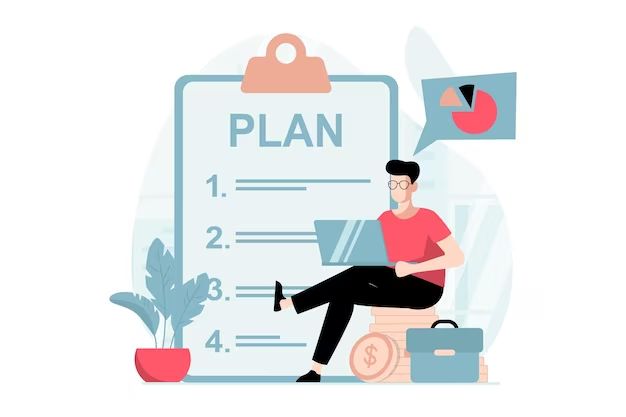Making a comprehensive recovery plan is crucial for overcoming addiction and maintaining long-term sobriety. A recovery plan provides structure, accountability, and a clear path forward through the recovery process. This article will outline how to create an effective recovery plan in 10 steps.
What is a recovery plan and why is it important?
A recovery plan, also known as a relapse prevention plan, is a detailed guide for achieving and sustaining recovery from addiction. It maps out the strategies, resources and lifestyle changes required to overcome substance abuse and improve mental health and wellbeing.
Having a strong recovery plan in place is important because:
- It provides clarity and direction through every stage of recovery.
- It helps identify triggers or high-risk situations and prepare coping strategies in advance.
- It holds you accountable and motivates you to stick to goals.
- It ensures recovery remains a top priority amidst life’s distractions.
- It empowers you to take control of your health and make lasting positive changes.
Studies show that implementing a tailored plan dramatically improves the chances of achieving and maintaining sobriety long-term. It also reduces the risk of relapse by helping you build the skills, network and lifestyle needed for success.
How to make a recovery plan in 10 steps
Follow this 10-step process to create a robust recovery plan:
Step 1: Set recovery goals
First, identify your short-term and long-term recovery goals. Be as specific as possible. For example:
- Short-term: Safely detox from alcohol within 30 days.
- Long-term: Achieve 5 years sober living.
Setting clear goals gives direction and motivates you towards positive change.
Step 2: Identify recovery resources
Make a list of the resources that can support your recovery, including:
- Professional treatment: Detox, inpatient rehab, outpatient counseling, medications, etc.
- Peer support groups: 12-step meetings, SMART Recovery, Refuge Recovery, etc.
- Sober community: Sober living homes, recovery coaches, addiction services, etc.
- Health and wellness resources: Nutritionists, personal trainers, mindfulness teachers, spas, etc.
Having a strong support network boosts your chances of overcoming addiction for good.
Step 3: Identify triggers
Make a list of the people, places, things, thoughts or feelings that may trigger cravings or relapse. For example:
- Stressful situations
- Social events where others are drinking
- Contact with using friends
- Driving by the old neighborhood bar
- Feeling lonely, tired or depressed
Understanding triggers helps you avoid or manage high-risk situations.
Step 4: Develop coping strategies
Outline healthy strategies to deal with cravings, triggers and stress without relying on substances. Useful techniques include:
- Calling your sponsor or supportive friend
- Going to a 12-step meeting
- Exercising, meditating or praying
- Using cognitive behavioral therapy (CBT) techniques
- Engaging in a hobby or leisure activity
- Letting cravings pass without giving in (urge surfing)
Having coping mechanisms in place empowers you to overcome challenges in recovery.
Step 5: Make lifestyle changes
List the lifestyle changes needed to support your recovery, such as:
- Avoiding people, places and things that trigger substance use
- Creating a sober social circle
- Pursuing education or employment opportunities
- Volunteering or engaging in community groups
- Developing good self-care habits like proper nutrition, exercise and sleep hygiene
- Finding purposeful hobbies or activities to fill free time
Making positive lifestyle changes reduces exposure to temptation and promotes health.
Step 6: Commit to a recovery routine
Establish a structured daily routine to maintain recovery momentum, involving activities like:
- Morning meditation or prayer
- 12-step meetings or peer support groups
- Addiction counseling and treatment sessions
- Work or volunteering commitments
- Exercise or hobbies
- Family time
- Journaling, reading or leisure activities before bed
A consistent routine provides stability and keeps recovery top priority.
Step 7: Set short-term milestones
Define some short-term milestones to track your progress, and reward yourself when achieving them. Milestones may include:
- Completing detox or intensive treatment
- 30 days/60 days/90 days sober
- Exercising daily for 2 weeks
- Reconnecting with family
- Securing sober housing
Meeting milestones builds confidence and reinforces sober behaviors.
Step 8: Find an accountability partner
Choose a sponsor, peer mentor or trusted friend to provide accountability by:
- Speaking regularly to check in
- Offering social support
- Guiding you through challenges
- Helping implement your recovery plan
Accountability from someone in recovery significantly reduces relapse risk.
Step 9: Identify your reasons for change
Make a list of the deeply personal reasons you are motivated to recover from addiction. Reasons may include:
- Improving your physical and mental health
- Having better relationships
- Being a good role model for your kids
- Succeeding at your career or education
- Regaining self-respect and autonomy
Referring to your reasons in challenging times re-ignites your recovery dedication.
Step 10: Learn to cope with relapse
Understand that relapse is common in recovery. Prepare by:
- Identifying your personal signs of relapse
- Ensuring you can access emergency support services
- Accepting slip-ups don’t have to derail the recovery process
- Being accountable to your support network
- Recommitting immediately to sober living
A proactive relapse prevention strategy reduces the severity if you temporarily lapse.
Conclusion
Creating a detailed recovery plan is essential for overcoming addiction and sticking to lifelong behavior change. The 10 steps above help build a robust plan that provides structure, support and accountability through every stage of recovery.
Implementing a personalized recovery plan leads to:
- Greater self-awareness of triggers, thinking patterns and lifestyle choices
- Healthier coping mechanisms when faced with challenges
- A strong social network and resources to prevent relapse
- An organized daily routine focused on sobriety
- Positive lifestyle changes that reinforce recovery
By being proactive and detailed when making your recovery plan, you dramatically increase your chances of achieving stable, long-term sobriety and wellbeing.

